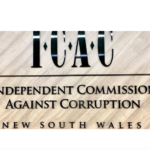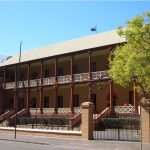NSW Government to Face Another Corruption Investigation

The New South Wales Government is facing another corruption investigation, this time over reports that a secret land deal in Western Sydney will cost taxpayers more than double the original purchase price.
The deal involves a six hectare property bought in Grand Avenue, Camellia, purchased by the NSW government for $53.5 million to be developed as a depot for trams for the Parramatta light rail project.
Sale rushed through
It’s since been revealed that the toxic site will require at least a further $48 million, and potentially much more, to undertake work to prevent toxic chemicals from leaching out of the property.
The land was bought by property company Billbergia for $38 million (which was, at the time, up against the NSW Government as a rival bidder) in 2015. Several months later, Billbergia sold the property to the NSW government for $53.5 million. At the time, the Valuer-General said the land was worth $15.5 million.
It’s also since been revealed that the purchase of the contaminated land came after an urgent “out of session” meeting of senior government officials, which resulted in a reversal of earlier plans to get the landowner to pay to remediate the site or seek compulsory acquisition of the property.
Out-of-session papers are unusual and are generally reserved for urgent matters, although several senior public servants within Transport NSW have since said that whenever questions were raised about why the deal was being rushed through so quickly, they were shut down, amidst a culture of ‘bullying and intimidation.’
The out-of-session document itself also raises serious questions about the rushed nature of the purchase. It notes that an assurance review or investment-gating review had yet to be completed, which is required under Treasury rules.
Compulsory Acquisition
It’s not entirely clear why compulsory acquisition was not an option. Nor is it clear why the NSW Government didn’t enforce the development company owner to undertake the containment process as a condition of sale.
Compulsory acquisition is an option available to all levels of governments across the country, although the laws vary slightly across each state and territory.
In New South Wales, compulsory acquisition is sometimes called resumption and occurs when the government needs to take ownership of land or property that is owned by individuals or businesses for public purposes and infrastructure – for example, roads, rail airports, etc. It is governed by the Land Acquisition Act 1991.
Under the act, landowners are legally entitled to financial compensation for their loss – which is usually negotiated by the government body and the landowner and financial amounts are based upon the value of land, and takes into consideration the value of any buildings as well as any income being generated from the property.
ICAC expected to investigate
While the NSW Minister for Transport Andrew Constance says he had referred the entire matter to the Auditor-General, it’s understood that the scope of the Auditor-General’s powers are not wide enough to thoroughly investigate the deal which will require obtaining information from a private sector company.
For this reason, the Independent Commission Against Corruption has now since been asked to get involved. Of serious concern is the due diligence undertaken prior to the deal.
The land has been described by an environmental expert as a “cocktail of highly toxic chemicals”. Other experts in the field suggest the land could take decades to completely clean up, and that this means that in future the NSW government could potentially be liable for any issues with neighbouring properties.
In the meantime, the NSW Government has not decided whether or not the second stage of the light rail project will even proceed. If it doesn’t, then the land won’t even be required.







